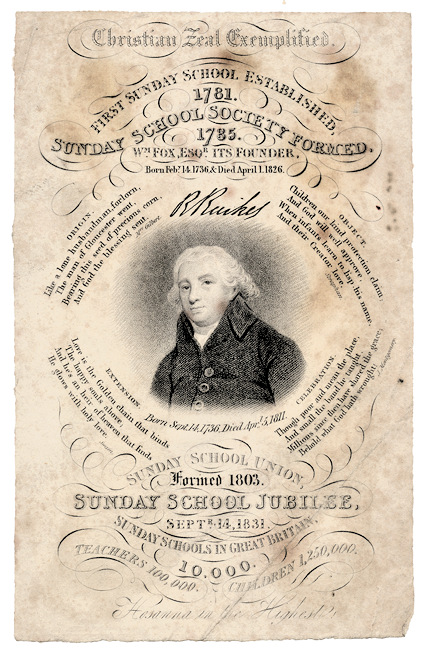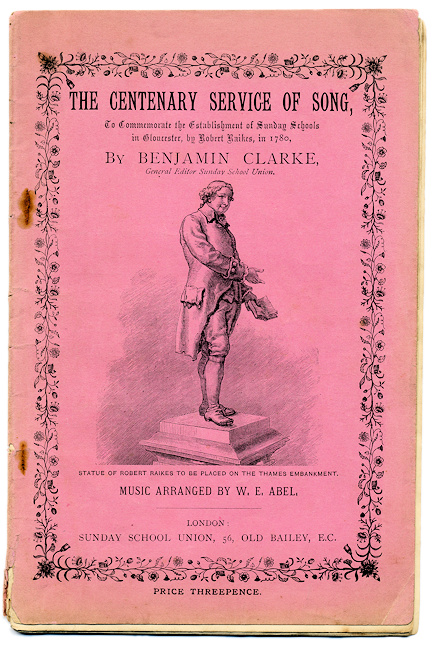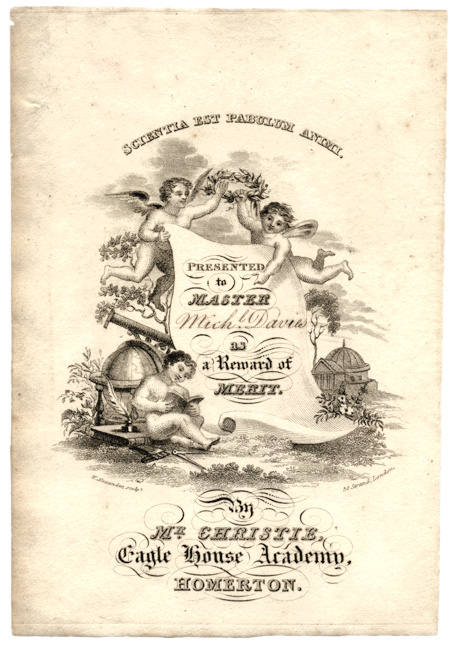 |
|||||
| News About Us Membership Events Links |
|
Robert RaikesRobert Raikes(1736 – 1811), a visionary figure in the 18th century, is celebrated as the pioneer behind the Sunday schools movement. His innovative approach to education, particularly for the impoverished youth, revolutionised the way children were educated, instilling values and knowledge beyond the confines of the traditional schooling system. One of Raikes' significant contributions was the introduction of a rewards system based on merit within his Sunday schools. Recognising the benefits of not only imparting knowledge but also fostering discipline and commitment, he devised a method to promote good behaviour and regular attendance among his students. Raikes understood that for education to be effective, it needed to be consistent and engaging, requiring the students' dedication. Children who exhibited exemplary behaviour, displayed repeated attendance, or showed remarkable improvement in their studies were duly recognised and rewarded. These rewards ranged from simple tokens of appreciation to certificates of merit or privileges within the school.
Through Raikes' innovative approach, the rewards of merit became a cornerstone of the Sunday schools movement. This system not only helped maintain discipline and attendance but also contributed to shaping the students' character, instilling values of diligence, responsibility, and dedication to learning. The importance of recognising and rewarding effort and achievement laid the foundation for a more engaging and effective educational experience for countless children, leaving an enduring legacy in the history of education.
The rewards of merit system, pioneered by the Sunday School Movement in the 19th century, resonated deeply within both private and public educational institutions, shaping their social and academic practices for decades to come.
|
|
|
Home | News | About Us | Membership | Events | Links | Contact | Item of the month | Articles |
| Copyright © The Ephemera Society 2025. All Rights Reserved. |


